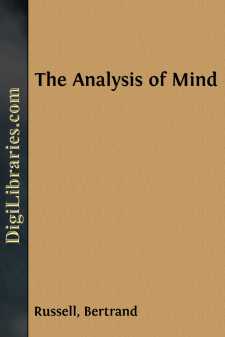Categories
- Antiques & Collectibles 13
- Architecture 36
- Art 48
- Bibles 22
- Biography & Autobiography 813
- Body, Mind & Spirit 142
- Business & Economics 28
- Children's Books 17
- Children's Fiction 14
- Computers 4
- Cooking 94
- Crafts & Hobbies 4
- Drama 346
- Education 46
- Family & Relationships 57
- Fiction 11829
- Games 19
- Gardening 17
- Health & Fitness 34
- History 1377
- House & Home 1
- Humor 147
- Juvenile Fiction 1873
- Juvenile Nonfiction 202
- Language Arts & Disciplines 88
- Law 16
- Literary Collections 686
- Literary Criticism 179
- Mathematics 13
- Medical 41
- Music 40
- Nature 179
- Non-Classifiable 1768
- Performing Arts 7
- Periodicals 1453
- Philosophy 64
- Photography 2
- Poetry 896
- Political Science 203
- Psychology 42
- Reference 154
- Religion 513
- Science 126
- Self-Help 84
- Social Science 81
- Sports & Recreation 34
- Study Aids 3
- Technology & Engineering 59
- Transportation 23
- Travel 463
- True Crime 29
Analyzing Character
Description:
Excerpt
CHAPTER I
CAUSES OF MISFITS
"Blessed is the man who has found his work."—Carlyle.
Only the rarest kind of soul has a clear call to his vocation. Still rarer is he who, knowing his work, can create circumstances which will permit him to do it. Of the thousands of young people who have sought us for counsel, only a very small percentage have had even a vague idea of what they are fitted to do, or even what they wished to do. Strange to say, this lack of definite knowledge as to vocation holds true of those who have just graduated from college or university. Many a college graduate has said to us: "Why, I shall teach for a few years until I have fully made up my mind just what I wish to do. Then I shall take my post-graduate course in preparation for my life work." Even so late a decision as this often proves unsatisfactory.
The causes for uncertainty as to work are many and varied. And yet all the many causes can be traced to two fundamental deficiencies in human nature which are but poorly supplied in our traditional systems of training and education. The first of these is, of course, ignorance—ignorance of self, ignorance of work, ignorance on the part of parents, teachers, and other advisors; ignorance on the part of employers. As a race, we do not know human nature; we do not know how to determine, in advance of actual, painful and costly experience, the aptitudes of any individual. We blunder a good deal even in trying to learn from experience. We do not know work; we do not know its requirements, its conditions, its opportunities, its emoluments. And so, in our ignorance, we go astray; we lead others astray. We neglect important and vital factors in human success and happiness because we do not know how important and how vital they are. Our ignorance of their importance is due to our ignorance of human nature and of work.
A second cause for our uncertainty lies in the almost universal human habit of purposelessness. Drifting, not steering, is the way of nearly all lives. It is hard mental work to plan, to consider, to study, to analyze; in short, to think. Someone has said that the average man would rather lie down and die than to take the trouble really to think. It is easier to await the knock of opportunity than to study her ways and then go out and capture her. She treads paths which may be known. She has a schedule which may be learned. She may thus be met as certainly as by appointment. Those who await her knock at the door may be far from where she passes.
We in America, especially, place altogether too high a value on our ingeniousness, our resourcefulness. We therefore put off the evil day. We say to ourselves: "There is plenty of time. I'll manage somehow or other when the time comes for action." We are rather proud of our ability to meet emergencies. So we do not plan and take precautions, that emergencies may not arise. It is too easy to drift through school and college, taking the traditional, conventional studies that others take, following the lines of least resistance, electing "snap courses," going with the crowd....












